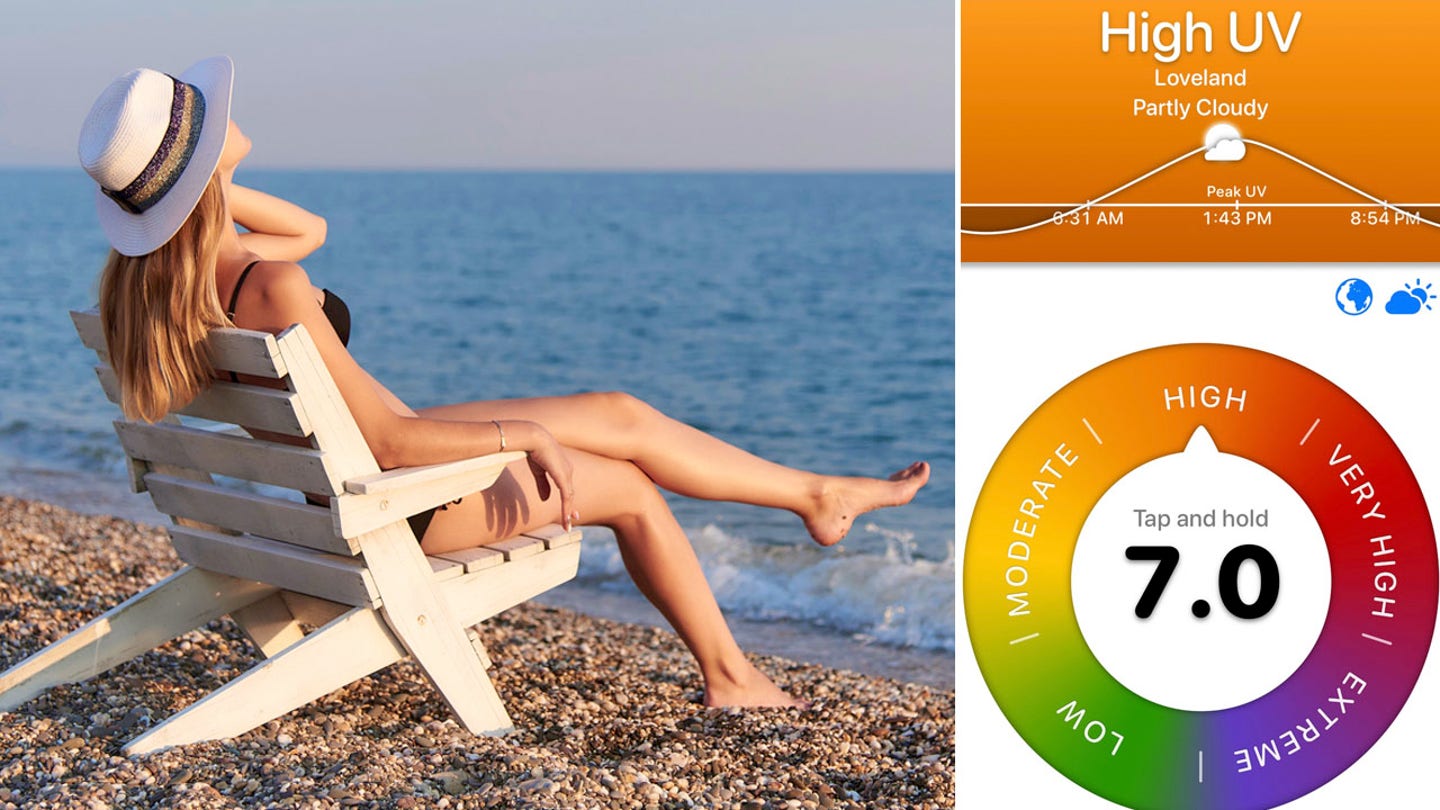Tracking the UV has become a trend among some young adults — namely members of Gen Z, who are looking for optimal sun exposure.
The UV index is a daily forecast that measures the intensity of ultraviolet (UV) radiation from the sun.
The numbers range from 1, the lowest exposure, to 11+, which indicates extreme sun exposure.
TANNING PILLS CAN POSE SERIOUS DANGERS, DERMATOLOGISTS WARN: ‘CONSUMERS SHOULD BE AWARE’
Many young adults keep track of the UV through weather apps on their smartphones, in hopes that a high number will lead to a better tan — but some health experts are warning of the potential dangers.
Tanning at higher UV levels is more likely to cause damage that can lead to skin cancer, according to Eric D. Whitman, M.D., medical director of Atlantic Health System’s oncology service line in New Jersey.
A UV (ultraviolet) index chart depicts exposure levels from 1 to 11+. (iStock)
“While some effects might be seen immediately, such as dark spots and marks, cancer may not become apparent for decades,” he told Fox News Digital.
DOES SUNSCREEN CAUSE SKIN CANCER? DOCTORS DEBUNK CLAIMS GONE WILD ON SOCIAL MEDIA
Exposure to higher UV levels can result in a faster and deeper tan, but this comes at a “significant trade-off of an increased risk of skin cancer,” Whitman warned.
“So, it is important to take precautions when planning to spend time outdoors,” he added.

Exposure to higher UV levels can result in a faster, deeper tan, but it comes at a “significant trade-off of increased risk of skin cancer,” a doctor warned. (iStock)
Dr. Brendan Camp, a Manhattan-based board-certified dermatologist, also shared with Fox News Digital that there is “no such thing as a safe tan.”
Tanning represents the skin’s response to the damaging insult of UV radiation, the doctor noted.
SKIN CANCER CHECKS AND SUNSCREEN: WHY THESE (STILL) MATTER VERY MUCH FOR GOOD HEALTH
“The skin increases pigment or melanin production as a way to protect cellular components, namely DNA, from the effects of UV radiation,” Camp said.
Spending time outdoors when the UV index is high increases the risk of sunburn and sun damage, which can later develop into fine lines, wrinkles, dark spots or skin cancer, according to the dermatologist.
Responsible sunbathing
For safe sun exposure, experts recommend using sunscreen with SPF 30 or higher.
Sunscreen should be reapplied every two hours, or after swimming and sweating.

“Prolonged exposure without protection can lead to skin damage and increase the risk of skin cancer,” a doctor said. (iStock; Melissa Rudy/Fox News Digital)
Whitman and Camp also suggested wearing protective clothing, using an SPF lip balm, seeking shade and avoiding peak sun hours.
“Especially during summertime, it’s important to pay closer attention to kids to ensure they are properly protected against the sun,” Whitman advised.
CLICK HERE TO SIGN UP FOR OUR HEALTH NEWSLETTER
Some degree of sun exposure can be healthy due to the vitamin D benefits, he added, but only if limited to brief periods during non-peak hours.
While some may think they look healthier with a tan than without one, Whitman said it’s important to dispel this misconception.

A high UV index can lead to a deeper tan, but also the risk of increased sun damage, experts warn. (iStock)
“Prolonged unprotected sun exposure can potentially increase the risk of skin cancer,” he reiterated.
For more Health articles, visit www.foxnews/health
Skin cancer can only be diagnosed through regular skin examinations by a health care professional, Whitman noted.
When self-examining the skin, Whitman recommends looking for new or changing spots.
CLICK HERE TO GET THE FOX NEWS APP
“But these [exams] should never replace a visit to the doctor,” he said.
“Any irregularities should be promptly evaluated by a health care professional to rule out potential risks or concerns.”
